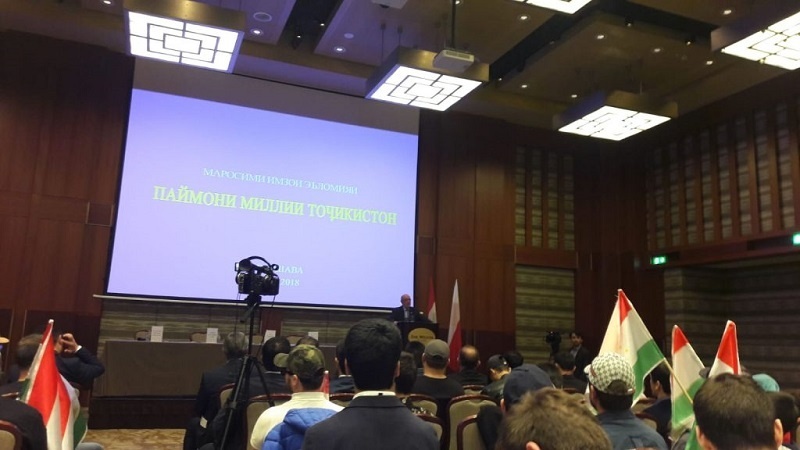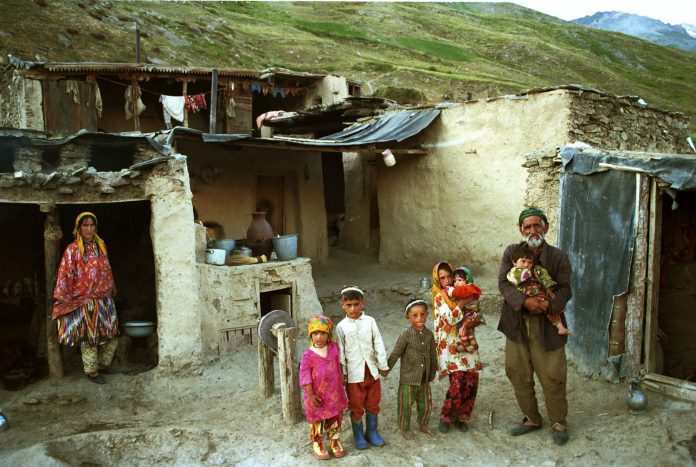“In recent years, Tajik opposition activities abroad tend to intensify. This became especially visible after a substantial part of fault-finding politicians emigrated to Europe. In their activities, these groups have very limited means for achieving goals,” political analyst Khursand Khurramov notes in his article written for CABAR.asia analytical portal.
Follow us on LinkedIn!
Article Overview:
- Tajik opposition reunites. This is the second consolidation after the end of the civil war;
- Today, the political potential of the Tajik opposition alliance is limited to social networks and virtual space;
- The list of priority requirements of the National Alliance includes the protection of human rights, restoration of rights and freedoms for all political forces, as well as ensuring free elections in Tajikistan.

Opposition figures in Tajikistan attempted to unite for the second time after the end of the civil war to achieve political goals. Despite this event was held outside the country, the mere fact of the unification of certain opposition groups actualizes the issue of necessity to study its activities, motives and political perspectives.
In early September 2018, on the eve of the 27th anniversary of the independence of Tajikistan, four Tajik opposition groups announced their unification in the capital of Poland: “National Alliance” (including the banned Islamic Renaissance Party of Tajikistan (IRP), “Movement for Reforms and Progress”, “Forum of Free-Thinking Citizens of Tajikistan” and “Association of Central Asian Migrants in Europe”.
Since the acquisition of independence, the relationships between the opposition and the authorities of Tajikistan remain very complex and controversial. The process – from armed confrontation for power (1992-1997) to signing a peace agreement (1997) and giving the opposition 30% of seats in the government, and then gradual displacement opposition groups from the political field, up to recognition of the main opposition party (IRPT) as terrorist in 2015 – very vividly illustrates this struggle done by the principle of “the winner takes it all”.
- demonstration of protest potential of all regions of the country to Dushanbe and external observers;
- regional formation of the groups of solidarity to the creators of the alliance;
- establishing cooperation with countries that are wary of IRPT after its official ban;
- minimization of the Islamic factor through participation of the maximum number of secular figures in the union
The last issue is particularly sensitive for the IRP management, since this party has accessed a relatively large audience due to religious ideology over the past years. At the same time, there is an understanding of “contempt” for political Islam, both from secular citizens of Tajikistan and from international (US, Russia and China) and regional (Uzbekistan, Kazakhstan) actors.
Time will show whether Kabiri will be able to reverse the direction of the party to secularity. However, now he now emphasizes in his statements an exclusively secular future for Tajikistan. It should also be noted that the recently created alliance does not include all existing opposition groups outside Tajikistan. “Group 24” and the Congress of Constructive Force abstained from joining the coalition, thereby protesting against the presiding IRP. The head of the Congress and the leader of the political movement “Vatandor” declared an information war to the IRP, noting that the current party leadership by Muhiddin Kabiri is “ineffective and incapable of successful political management.” Existing Potential As for the possibilities of opposition groups in terms of identifying their supporters, they are almost completely limited. Before the official announcement of IRP as a terrorist group in 2015, its chairman said that the party has up to 42 thousand members. This figure cannot be confirmed now, since the party itself officially announced the cessation of activities on the territory of Tajikistan, and later was completely banned.
Considering the latest constitutional reform, in particular, the lowering of the age requirement for the presidency and the intensive career promotion of Rustam Emomali, it is obvious that the process of power transition has started in Dushanbe. The success of this transition depends on the stability of the political regime and on favorable external factors. Judging by the positive reviews of the capital residents, Rustam Emomali has almost succeeded in creating the image of an effective manager as mayor of Dushanbe on the domestic political level. This circumstance creates a favorable background for power transition and deprives the opposition of certain advantages. Nevertheless, the existing political regime has a number of problems and unsolved issues, including the problem of human rights inadequate protection, unresolved social and economic problems, high unemployment rate, corruption, increasing national debt, etc. These chronic problems of the country cannot be solved in the short period. Therefore, for an effective power transition, Dushanbe can either use repressive mechanisms, or choose for a certain liberalization, including a dialogue with the opposition. Judging by the latest decisions of the authorities, certain liberal steps to improve the image are already being taken. These could include the release of journalist Khairullo Mirsaidov, lawyer Shukhrat Kudratov, lifting the travel ban on opposition family members, inviting the opposition to the negotiations during the OSCE Human Dimension Conference.
Conclusions Tajik opposition activity abroad in recent years in fact tends to intensify. This became especially visible after the ban of IRPT and the emigration of a significant number of its members to Europe. Despite this, opposition groups have very limited means for achieving goals, because the absolute majority of Tajikistan citizens do not have access to social networks and new information spaces, and the republic’s authorities can filter the information to some extent.
In addition, any demonstration of a sympathy for these groups is can lead to criminal prosecution, since almost all of them are included in Tajikistan to a list of terrorist and extremist organizations. Nevertheless, the unresolved important socio-economic problems of Tajikistan and reliance solely on repressive methods may attract more attention to the activities of the opposition abroad and contribute to their popularization.
Obviously, despite certain liberal steps were taken, under the existing conditions, the political regime in Dushanbe does not intend to engage in dialogue with the opposition, since their confrontation has become too mutually exclusive. Such a prerogative, perhaps, will be passed on to the next contender for power if the family power transition happens successfully and the opposition is not able to counter it.This article was prepared as part of the Giving Voice, Driving Change – from the Borderland to the Steppes Project implemented with the financial support of the Foreign Ministry of Norway. The opinion expressed in the article does not reflect the position of the editorial board or the donor.

